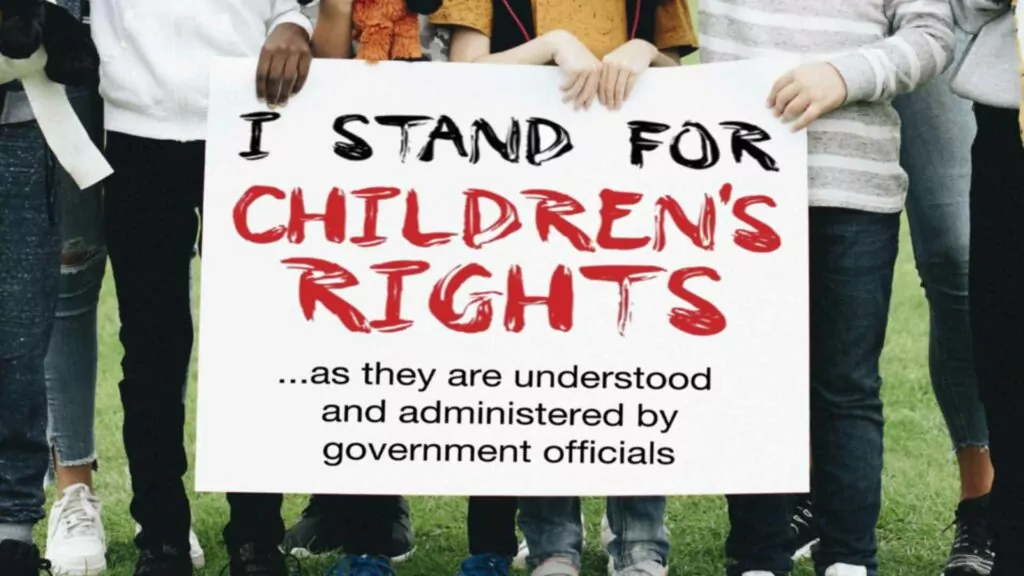With the onset of parenthood, couples suddenly find that this new role is now dominating their lives. Children have become a central factor in how time and money are spent, and these same children also become a source of anxiety. Are they okay? Are they alright? The well-being of their children becomes an overwhelming feature of parents’ lives.
Parents want what’s best for their children so the decisions they make are with this objective in mind. Christian parents will want their children to be instructed about God and his Word because they understand that spiritual matters are of the greatest concern. This normally includes education in a Christian school or homeschooling.
Historically, in the English-speaking democracies, parents’ ability to choose Christian education for their children has frequently received widespread support. Of course, parents can choose what education their children are to receive! Who else could make that kind of decision?
Sadly, there are threats on the horizon. Powerful forces in the media and various governments are increasingly suspicious about parental influence in education. These kinds of threats make it imperative for Christian parents to understand the basis of their rights in making authoritative decisions for their children.
One excellent source of information is American lawyer John Whitehead’s 1985 book entitled Parents’ Rights. Many of the matters he discusses in the book are dated because it was written thirty years ago. But the biblical and historical information he provides about parental rights are still valid and useful to know today.
The Bible
In the Bible, God has ordained three key institutions: the family, the church, and the state. Each one has specific roles and responsibilities. Each one also has specific powers and authority. However, the power and authority are not inherent in the institutions themselves but are delegated by God. Family, church and state have “derivative” authority from God – it comes from Him. Therefore the authority they exercise must always be used in accordance with God’s revealed will. There is no just authority that can be exercised in opposition to God’s truth.
To which of the three institutions did God give the oversight and care of children? Clearly, it is the family. Already in the first chapter of Genesis, Adam and Eve are told to be fruitful and multiply. Whitehead notes:
“Not only is there a command to have children, but there is the teaching that children are from God. When Eve had borne a child, she recognized that she had not done this alone and understood that the Creator was the ultimate source of the child. She said: “I have gotten a man from the Lord.”
In Genesis 33:5, Genesis 48:9 and Joshua 24:3-4, it is explicitly stated that children are given by God. As Whitehead explains:
“These verses indicate that children are given by God to families and not inanimate institutions or governments. Not only are children given, but they are also called gifts and blessings: “Behold, children are a gift of the Lord; the fruit of the womb is a reward.” As such, children are not just given to any family. The implication is that specific children are given to particular parents as a gift from God.”
The centrality of the family in the raising of children is further buttressed by the primacy of the family as an institution:
“The family was the first institution created by God, even before the state. Because it was the first, it can be considered to be the foundational institution upon which all others are built.”
History
John Whitehead is American, so the historical discussion he provides about parental rights is primarily about the United States. Nevertheless, the USA is part of the broader Anglo-American culture (“Anglosphere”) that shares legal precepts descended from Britain. The other Anglosphere countries have operated under the same basic principles.
During the first half of the seventeenth century, Puritan settlers from England began arriving in the North American colonies. This area became known as New England. Later in the century the colonies adopted laws requiring children to learn to read and to be catechized. It was clearly recognized that teaching children was the responsibility of parents and these laws reinforced that fact. As Whitehead points out,
“All of these enactments were concerned simply with the basic education of children, and should not, therefore, be confused with modern compulsory education laws which require classroom attendance at state-approved schools.”
Parents in the colonies did, in fact, take their responsibility seriously and children learned to read on a wide scale. “At the time of the Revolution, literacy rates had reached unprecedented heights, and by 1800 literacy was virtually universal.” That is, decades before the public school system was created in the USA, almost everyone (excluding slaves, unfortunately) could read and write in that country. Universal literacy was not the result of public education.
John Locke
John Locke (1632-1704) has been one of the most influential political philosophers in the history of the English-speaking world. He was the key philosopher behind the founding of the United States, and his thought underlays many early American documents and institutions. Although there is a debate over the degree to which Locke reflects a genuine Christian perspective, there are some clear biblical ideas in his work.
Locke understood that God had created the world and everything in it. As Whitehead explains, Locke saw children as being the creation of God:
“Therefore, instead of belonging to their parents, children belong to the Creator. Parents, then, hold children in trust for God. This means that parents, as stewards, are to take care of their children for God. The child must be raised to live the sort of life which is pleasing to the Creator.”
Children, of course, are born without the ability to take care of themselves or make decisions for their lives. They will eventually develop those capacities and become independent adults. But in the meantime, it is necessary for the parents to care for them and take steps to see that they grow morally and mentally into responsible individuals. As Locke saw things:
“the child’s weakness is a source of parental authority, which in turn is a source of parental obligation. Thus, parents are under a God-mandated obligation to “preserve, nourish, and educate” their children. This is not a choice parents have. The obligation is not to the child, but to God.”
In other words, parents are accountable to God, first and foremost, for how they raise their children. The children are really God’s children entrusted to the parents, so those parents must answer to Him for their child-rearing efforts.
The courts
Locke’s perspective on the position of parents reflects the Christian thought that dominated the US during the eighteenth and nineteenth centuries. Whitehead states that, “it was this parental authority and obligation that was embedded in the law and protected by the courts.”
Whitehead discusses particular American court cases from the nineteenth and early twentieth centuries that demonstrate how strongly parental rights were upheld in common law. He summarizes the situation thusly:
“Parental power, the early court decisions indicate, is essentially plenary. This means it should prevail over the claims of the state, other outsiders, and the children themselves ‘unless there is some compelling justification for interference.'”
It is important to note that the erosion of parental rights that has occurred in recent decades is strongly related to the decline of Christianity in the USA and in the other Western countries as well. This is reflected in American court decisions:
“The older cases specifically noted that they were relying on Christian principles. However, the modern phobia over the separation of church and state prevents any reference to the Christian principles in terms of them being truth.”
Parental rights were historically based on Christian ideals. As the Christian basis of the West has deteriorated, the foundation for parental rights has weakened as a result.
There is still some support for parental rights in the USA and other countries like Canada. But Whitehead thinks that continuing support is best explained as being part of “the cultural memory” of the past “when the Christian idea that children are gifts from God was an assumed principle.”
Conclusion
Whitehead suggests that there are two key commitments Christians must make if they are to secure parental rights. “The first is, of course, the commitment to be good parents.” Parents must raise their children in accordance with God’s loving commands and expectations. In other words, parents must take their responsibilities and obligations seriously if they want their parental rights to be recognized.
“Second, as Christians, we must be committed to stand strong for the truth.” Parental rights are ultimately rooted in Christianity, so it is especially incumbent upon Christians to advocate for them. The purpose and rationale for parental rights need to be explained.
In the end, parental rights are not primarily for the benefit of parents, but for the benefit of children. Children need the loving care of their parents. No institution can take the place of the family in the lives of children. As Whitehead puts it, “The state is simply, and will always be, a poor and ineffective parental substitute.”
This first appeared in the June 2015 issue.











